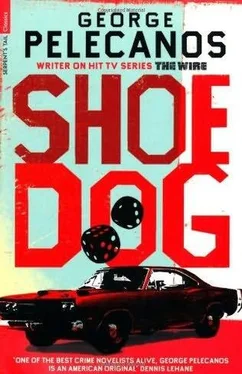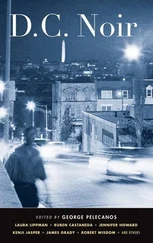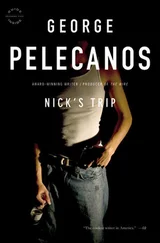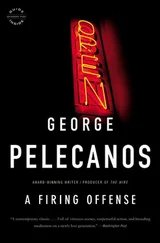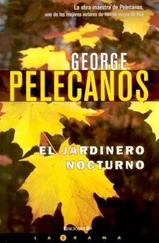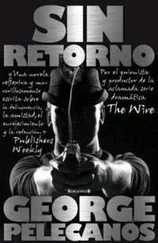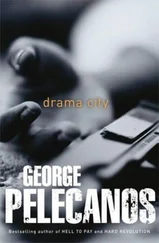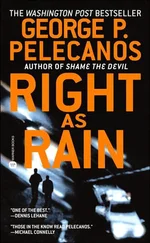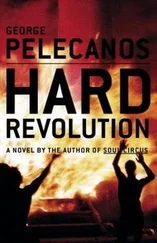George Pelecanos - Shoedog
Здесь есть возможность читать онлайн «George Pelecanos - Shoedog» весь текст электронной книги совершенно бесплатно (целиком полную версию без сокращений). В некоторых случаях можно слушать аудио, скачать через торрент в формате fb2 и присутствует краткое содержание. Жанр: Криминальный детектив, на английском языке. Описание произведения, (предисловие) а так же отзывы посетителей доступны на портале библиотеки ЛибКат.
- Название:Shoedog
- Автор:
- Жанр:
- Год:неизвестен
- ISBN:нет данных
- Рейтинг книги:3 / 5. Голосов: 1
-
Избранное:Добавить в избранное
- Отзывы:
-
Ваша оценка:
- 60
- 1
- 2
- 3
- 4
- 5
Shoedog: краткое содержание, описание и аннотация
Предлагаем к чтению аннотацию, описание, краткое содержание или предисловие (зависит от того, что написал сам автор книги «Shoedog»). Если вы не нашли необходимую информацию о книге — напишите в комментариях, мы постараемся отыскать её.
Shoedog — читать онлайн бесплатно полную книгу (весь текст) целиком
Ниже представлен текст книги, разбитый по страницам. Система сохранения места последней прочитанной страницы, позволяет с удобством читать онлайн бесплатно книгу «Shoedog», без необходимости каждый раз заново искать на чём Вы остановились. Поставьте закладку, и сможете в любой момент перейти на страницу, на которой закончили чтение.
Интервал:
Закладка:
It was in the dark of that basement that Constantine felt what he would call the Beat. At first it had been a weakness of the knees, and then it had been the conscious counter-effort to control the adrenaline that told him to run. Stewart had succumbed to that part of it, tugging at Constantine’s shirt, whispering urgently as they both heard the muffled voices above, the tentative steps of the home’s residents padding toward their phone. But Constantine stayed in the house well after Stewart had left, and the adrenaline turned into a warm calm, a wash of power, and a distinct awareness of his sex. The Beat was knowing he was into something wrong, and the fear of it, and the point when the fear was no longer there. It was a hot buzz; it was in his jeans and his chest, and it was white hot in his head.
Constantine left the house calmly, walked down the street, and met Stewart at the corner. The cop cars came soon after that, sirenless and without cherries, but Constantine and Stewart were out of sight by then, lying beneath parked cars. Constantine felt the Beat once more as a searchlight passed across his folded arms, and then the cops were gone, and so was the Beat.
That was the most memorable night of Constantine’s stay in the service. He had enlisted as an act of rebellion against the old man, and after four years he had learned to use a gun and he had learned to fight with his hands. Those were the very elements that defined manhood to his father; at the time, the irony eluded Constantine.
He stayed in the South, taking advantage of his Marine Corps benefits, and enrolled in an arm of the University of South Carolina called Coastal Carolina, in Conway, just outside of Myrtle Beach. Constantine studied French because the sound of the language intrigued him, and because the prettiest coeds hung out at the Foreign Languages building, though he had no intention of turning the knowledge or the degree into a career. He was not interested then, nor would he ever be, in a career of any kind.
Occasionally Constantine would split a joint with one of those coeds after class, and once or twice the joint led to something sweaty and momentarily satisfying at his place, a trailer he rented on the cheap at Murrells Inlet. The trailer came with a fourteen-foot Boston Whaler, and when the tide was up on hot, slow afternoons Constantine could take the Whaler and a cooler filled with Pabst Blue Ribbon through the wetlands to Garden City. Sometimes he would fish the black waters of the Waccamaw River, and he would bring the fish back, clean it, and pan-fry it as the sun went down behind his place.
To pay the bills, Constantine worked as a line cook and expediter at a Tex-Mex joint in Myrtle Beach. At twenty-seven he was the grand old man of the mostly college-age staff, and he was afforded the accompanying respect. The waitresses were uniformly blond and brown-skinned, in full bloom, and Constantine partook when the opportunities arose. After the dinner rush he would take his Marlboros and a cold pitcher of draft beer and sit on a log in the back of the restaurant, and he would smoke and drink as he looked up at the stars, and he would smell the pleasant summer green of South Carolina. He liked working at the restaurant and living in Murrells Inlet as much as anything he had ever done.
Only once in that time did Constantine feel the Beat. He had been dropped off late one night on the highway after a drinking game at a bar in Myrtle, and he had tried to hitchhike back toward the Inlet. Before he could get a ride, he walked by a house where an unlocked Plymouth Duster sat shining under a blue light in the driveway. Constantine hot-wired the ignition, and as it sparked and the lights came on inside the house, he began to feel the Beat. He gunned the Plymouth onto the interstate as the screaming occupants of the house chased him on foot, and the rush inside him faded as they disappeared from the glow of his taillights. He parked the car a block from his trailer and walked to his bed, where he quickly fell to sleep. The next morning he lit a Marlboro as he casually walked by the police, who were dusting the car for prints. He knew that his prints were not on file, and he knew that no one had seen his face behind the wheel of the Plymouth.
The incident was typical, as in those years few bad things touched Constantine. One morning, when he was turning over his boat at the waterline, a moccasin as black and fat as a tire slithered oat across his feet, and early on he caught the clap from an orange-haired waitress at a pool hall and bar called Magasto’s, in South Myrtle. But these were things that affected him only mildly, and if he learned anything at all it was to keep a sharp eye out for snakes and women who used cheap dye to color their hair.
Constantine left South Carolina three years after receiving his degree. He was nearly thirty, and he had ten thousand restaurant dollars rolled in a shoe box beneath his bed. He sold everything he could not fit into a backpack, bought an old ragtop Barracuda, and headed southwest.
He drove slowly through the South, stopping for a few months in Baton Rouge, where he worked briefly in the kitchen of a bar on the Mississippi River. The bar had a wooden floor filmed with sawdust, and the jukebox played Jimmie Rodgers, Big Joe Turner, and Carl Perkins. Willie Hall, the proprietor, was a bald man with a square head and small green eyes, and he took a liking to Constantine. Hall had inherited the bar from a childless uncle, but his real love was horses. He bred them on a small ranch he owned just outside of town. Before Constantine left, Willie Hall told him to look up his brother, Richard Hall, south of Los Angeles, if he was ever in need of work.
For the next few months, Constantine made his way north and then southwest to California. During this time he met few people. The solitude did not feel odd to him, as Constantine felt that he had always been alone.
The Barracuda threw a rod and died in Pismo Beach, one day south of San Francisco. Constantine left the car in the lot of the Sea Gypsy Motel, grabbed his Jansport pack, and hitchhiked down the coast to Los Angeles. Once there, he phoned Richard Hall and told him that he needed work. Hall and Constantine agreed to meet.
Hall lived in an airy house in the hills above Newport Beach, overlooking the Pacific. Hall had the same small green eyes as his brother Willie, but the similarity ended there. Richard Hall was solidly built but strangely feminine, with soft, pink hands and smooth, hairless skin. Not gay exactly, but sexless. He wore an open velour robe during the interview and explained to Constantine that he was looking for a driver. Hall owned a high-end Mercedes sedan and a Porsche 911 but he did not drive. He offered Constantine eight hundred a week in under-the-counter dollars and Constantine agreed. Constantine wasn’t keen on Hall but the setup was just too sweet.
He settled into his duties and the southern California life-style quickly. His days were spent as a caretaker of the grounds and as a chauffeur and errand runner for Richard Hall: At night he mostly hung out at the marina bars in Newport, where he became friendly with the wait staff and tenders. He drank moderately and used marijuana infrequently, and cocaine only as a ticket to bed. Time passed like that and Constantine simply grew one year older and acquired a deeper tan.
One autumn night Richard Hall asked Constantine in for a drink. They had hardly spoken, and never about personal issues. Hall appeared to be half in the bag already, but Constantine considered him to be harmless, and admittedly he was a bit curious about this man, who seemed neither to work nor to have hobbies or interests. The two of them sat in Hall’s living room, where a large fire set in a marble hearth gave off the only light.
Richard Hall began to talk about his past. He had made his fortune ten years earlier as a crew chief on a sloop that ferried groups of rich people down to Mexico. On one such trip, a very wealthy woman asked him to hold onto “hundreds of thousands” of dollars, in broad daylight and in full view of several seedy characters, while she went ashore. That night, there was a full blown, machete-wielding assault on their boat. Hall and his partners killed the assailants using the arsenal of automatic weapons they kept on board, and then, without me wealthy woman but with her money, set out to sea. Hall punctuated this section of the story with a toothy grin and a strange, hearty laugh: “Ah-ha… ha, ha!”
Читать дальшеИнтервал:
Закладка:
Похожие книги на «Shoedog»
Представляем Вашему вниманию похожие книги на «Shoedog» списком для выбора. Мы отобрали схожую по названию и смыслу литературу в надежде предоставить читателям больше вариантов отыскать новые, интересные, ещё непрочитанные произведения.
Обсуждение, отзывы о книге «Shoedog» и просто собственные мнения читателей. Оставьте ваши комментарии, напишите, что Вы думаете о произведении, его смысле или главных героях. Укажите что конкретно понравилось, а что нет, и почему Вы так считаете.
